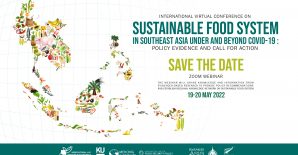News
ADB Provides $500 Million Loan to Mitigate Health and Economic Impacts of COVID-19 in Uzbekistan
This week, the ADB approved a $500 million loan for the Government of Uzbekistan to mitigate the negative impacts of COVID-19. The funds will be used to procure essential medical supplies, supplement health workers’ salaries, provide financial support for SMEs, and to create temporary jobs for low-income households. Additionally, the loan will allow Uzbekistan to expand its social protection system by providing additional childcare assistance, disability benefits, and salaries for teachers. - ADB
ADB Approves $1 Billion Assistance Package to Support Kazakhstan's Pandemic Response
The ADB has approved a $1 billion assistance package to assist Kazakhstan in confronting COVID-19. These funds will likely be co-financed by the Asian Infrastructure Investment Bank, the IMF, the World Bank, and/or the UN. The funds will support a comprehensive response to COVID-19, including social and employment protections, economic stimulus, medical equipment, and food and financial aid distribution. - ADB
World Bank Provides Additional Resources for the Rehabilitation of the Nurek Hydropower Plant in Tajikistan
The World Bank has approved $50 million in additional grant financing to help rehabilitate Tajikistan’s Nurek Hydropower Plant (HPP). Built in 1972, the Nurek HPP is a vital component of Tajikistan’s energy system, generating roughly 50% of total annual energy demand in the country. The Nurek HPP is in need of rehabilitation, and the funds will allow it to greatly increase energy efficiency and productivity. The Nurek HPP’s improvements will increase sustainability and allow for energy demand to be met at all times, including during winter. - World Bank
Analysis & Related Information
COVID-19 Analyses: IFPRI Blogs
IFPRI is facilitating an ongoing blog series to discuss COVID-19 as it relates to food security and development at the global, regional, and country levels. Though some concern specific countries, the insights are applicable to others as the world collectively experiences the impacts of the pandemic. This week's blogs concern ensuring effective government responses to COVID-19 in rural areas and the remittance impacts of COVID-19 in Myanmar.
IFPRI Virtual Events
IFPRI has been hosting virtual events to discuss various issues related to food and agriculture policy. Videos like this will periodically be posted publicly after being streamed live, and will include presentations from researchers, discussion between researchers, and Q&A. While there will not be a new seminar this week, please visit the link to view past seminars. The upcoming seminar on June 30 discusses "How are food businesses coping with COVID-19 and its aftermath?" and will include speakers from IFPRI, as well as academic institutions and food business around the world. Please visit this link to register.
A New Chapter in Uzbekistan’s Cotton Sector?
Uzbekistan’s cotton industry is an important component of the country’s economy. However, the huge demand for labor—in 2019, 1.75 million harvesters—has largely outweighed the supply, causing mass forced labor, children included. In recent years, Uzbekistan’s government has taken steps to decrease the incidence of forced or exploitative labor, including the abolition of state-set quotas. This analysis provides an in-depth look at the formulation of Uzbekistan’s cotton industry as well as the effectiveness of the recent measures. - The Diplomat
How does informality aggravate the impact of COVID-19?
The economic impacts of COVID-19 have been felt far and wide, but informal workers and businesses are especially vulnerable. Though the informal sector is an important economic component in many countries, particularly emerging market and developing economies, it is more likely to be left out of any economic stimulus initiatives. This presents a major challenge for such workers as well as the economies they operate in, since workers in the informal sector see lower wages and minimal access to social services. - World Bank Blogs
Publications & Reports
Does urbanization lead to less residential energy consumption? A comparative study of 136 countries
Wang, Q. et al. 2020. Energy, Volume 202. Early Online Version.
Economic Growth, Convergence, and World Food Demand and Supply
Fukase, E., Martin, W. 2020. World Development, Vol. 132.
Ecosystem service dependence in livestock and crop-based production systems in Asia's high mountains
Murali, R. et al. 2020. Journal of Arid Environments, Volume 180. Early Online Version.
Exploring Policy Options in Regulating Rural–Urban Migration with a Bayesian Network: A Case Study in Kazakhstan
Dufhues, T. et al. 2020. The European Journal of Development Research.
Land desertification and its influencing factors in Kazakhstan
Hu, Y. et al. 2020. Journal of Arid Environments, Volume 180. Early Online Version.
Making Water in Mongolia Available at the Right Time, at the Right Place, and in the Right Quality
Fan, M. 2020. Manila, Philippines.: Asian Development Bank.
Useful Links & Commentaries on Research Methods, Data & Publications
Difference-in-differences in practice: The case of mobile phones and farmers’ productivity
Florence Kondylis & John Loeser. 2020. Development Impact, World Bank Blogs.
Events & Announcements
Virtual Seminars on Applied Economics and Policy Analysis in Central Asia
IFPRI, Westminster International University in Tashkent, and the Lebniz Institute of Agricultural Development in Transition Economies (IAMO) will continue to host weekly seminars on topics related to applied economics and policy analysis in Central Asia. They will take place on Wednesdays, at 7:30am EST, 2:30pm Moscow, 4:30pm Dushanbe & Tashkent, 5:30pm Bishkek & Almaty. For subscribers, registration information will be sent on the Monday before each webinar. For more information and to subscribe, visit the link. This week's webinar will be hosted by IFPRI's Dr. Shenggen Fan from China Agricultural University, who will present Economic Impact of COVID-19 and Policy Responses: Lessons for Central Asian Countries from East Asian Experience.
Virtual AFE Seminar Series
A virtual seminar series organized by John List of the University of Chicago Department of Economics and Robert Metcalfe of Boston University's School of Business is being hosted weekly on Zoom. Each seminar will include a research paper presentation and Q&A, starting at 12pm EST on Wednesdays. Follow the link to view the full schedule of presenters and to sign up for invitations to the live seminar. Presentations will also by uploaded to a YouTube playlist.
Online Agriculture and Resource Economics Seminar
Dr. Marc F. Bellemare and PhD candidate Jeff Bloem will be hosting a weekly (Wednesdays, 11am CST) online seminar to discuss various research topics related to agricultural economics, nutrition, and food security. For example, the next seminar on June 24 includes a presentation of the paper, "Are High-Interst Loans Predatory? Theory and Evidence from Payday Lending" by New York University's Hunt Allcott et al. Follow the link for registration information and a schedule of upcoming seminars.
Development Policy and COVID-19: eSeminar Series
The World Bank's Development Research Group is hosting an online seminar series for discussions on development policy as it relates to COVID-19. The seminars are completely public, do not require an application or sign-up, and will continue for the foreseeable future.
If you would like us to add your colleagues to our mailing list, please direct them to the following link.
The articles included in this news digest have been generated from online sources. Any opinions stated herein are not representative of, or endorsed by, the International Food Policy Research Institute or its partners.



